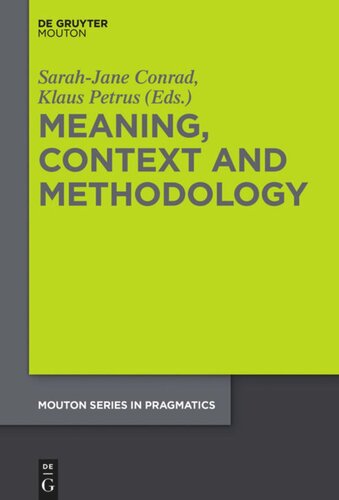

Most ebook files are in PDF format, so you can easily read them using various software such as Foxit Reader or directly on the Google Chrome browser.
Some ebook files are released by publishers in other formats such as .awz, .mobi, .epub, .fb2, etc. You may need to install specific software to read these formats on mobile/PC, such as Calibre.
Please read the tutorial at this link: https://ebookbell.com/faq
We offer FREE conversion to the popular formats you request; however, this may take some time. Therefore, right after payment, please email us, and we will try to provide the service as quickly as possible.
For some exceptional file formats or broken links (if any), please refrain from opening any disputes. Instead, email us first, and we will try to assist within a maximum of 6 hours.
EbookBell Team

4.8
94 reviewsWhat methodological impact does Contextualism have on the philosophy of language? This collection sets out to provide some answers. The authors in this volume question three ultimately connected assumptions of the philosophy of language. The first assumption relates to the predominant status of referential semantics and its power to explain truth-conditional meaning. This assumption has come under attack by the context thesis and a number of papers pursue the question of whether this is justified. The second assumption gives priority to assertive sentences when considering language use. The context thesis changes our understanding of language use altogether; possible implications from this methodological shift are addressed in this volume. According to the third assumption, philosophical analysis amounts to nothing more than conceptual analysis. The context thesis risks undermining this project. Whether conceptual analysis can still be defended as a methodological tool is discussed in this volume.